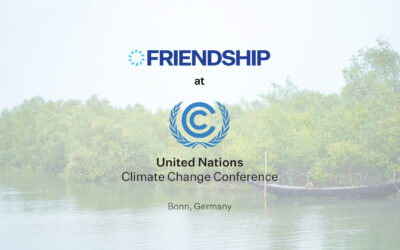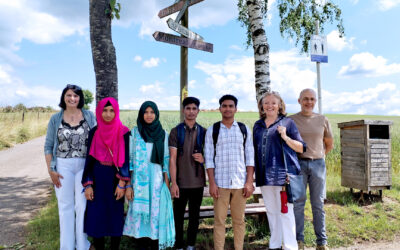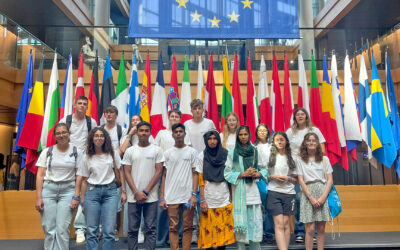The month-long Development in Practice course, designed for graduate students and professionals, ends with a closing ceremony and distribution of certificates
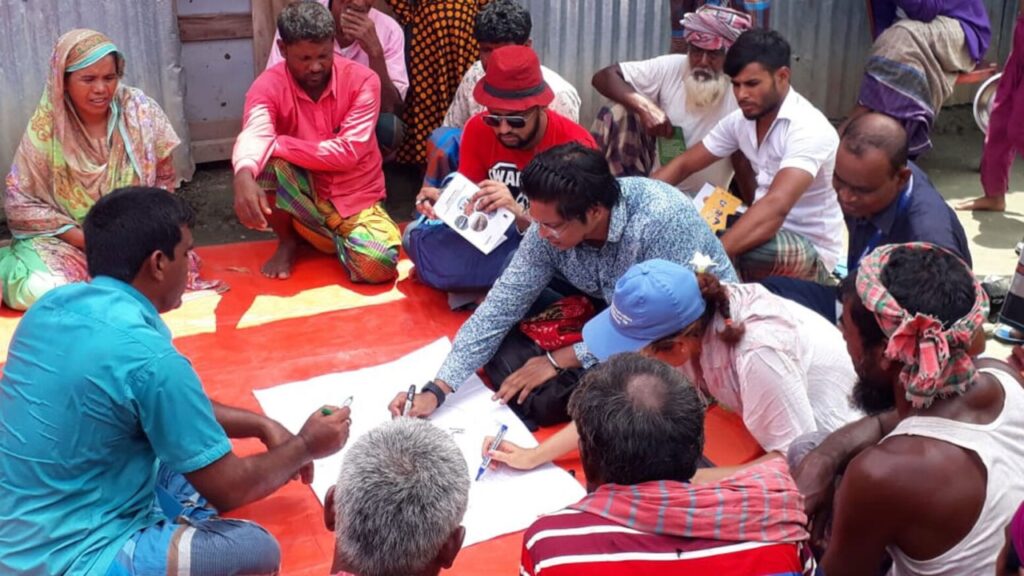
By Tahmeed Chaudhury
August 27, 2023
The inaugural batch of a summer school course on Development in Practice—the first of its kind at the University of Dhaka—featured 25 students from diverse backgrounds, primarily from the development sector, as well as from other professional spheres. The intense, month-long course offered collaboratively by Friendship Academy and the University of Dhaka included eight classroom seminars and a field visit to shifting river islands (chars) in Gaibandha district in northern Bangladesh.
The students received their certificates on Saturday in the presence of the vice-chancellor of the University of Dhaka, the dean of the Faculty of Social Sciences, the chairman and other faculty members of the Department of Development Studies, and senior officials from Friendship including founder Runa Khan, co-chair of Friendship International Marc Elvinger and head of Friendship’s education sector Brig. Gen. (retd.) Ilyas Iftekhar Rasul.
The course, Development in Practice, was designed for graduates and early career professionals in the development sector, and was taught by faculties from the Department of Development Studies of the University of Dhaka, and other reputed universities, and development practitioners from renowned NGOs, INGOs, and other national and international development organisations.
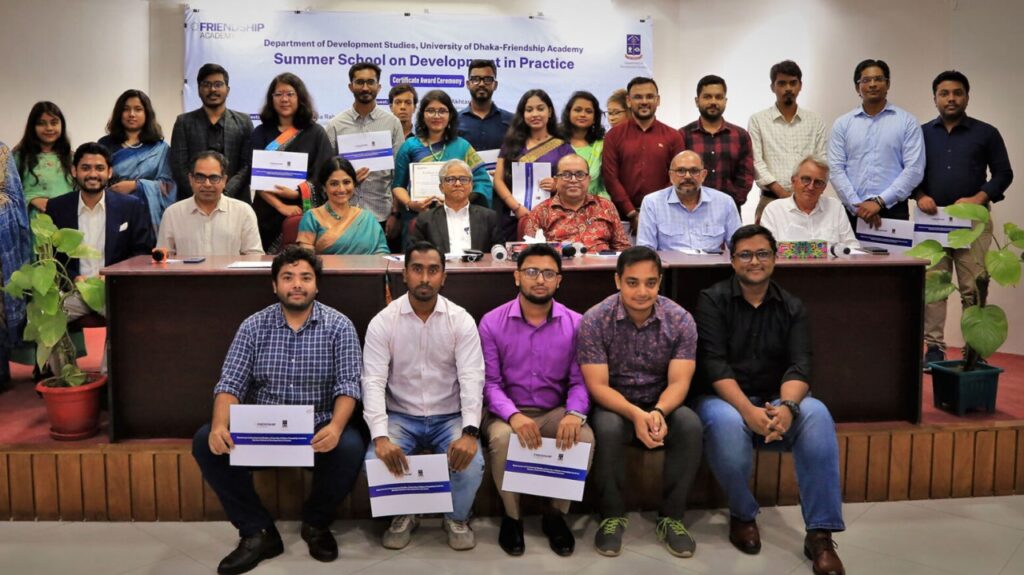
“There’s no substitute for skilled manpower to achieve sustainable development goals,” said Dr. Akhteruzzaman, vice chancellor of the University of Dhaka in his speech. He hopes that the Development in Practice course will be of great help in improving the skills of newcomers in their careers.
Friendship founder Runa Khan wants the summer school to be the school of young development professionals. “We want them to learn to manage projects, make the impossible possible, identify risks and tackle those risks, understand and listen to the communities and initiate the needed interventions,” she said.
“Entering a cooperation with the University of Dhaka in academia and being able to share 20 years of practice in development for improving the lives of remote and marginalised communities has been a longstanding aspiration of Friendship,” said Marc Elvinger, co-chair of Friendship International during his speech. He continued saying the summer school course on “Development in Practice” is the first tangible step in making this aspiration a reality.
Samiha Akter Simu, experimentation, and innovation associate at the United Nations Development Programme (UNDP), participated in the course and felt the diverse curriculum, which included project management, monitoring and evaluation, development communications, partnership building, etc., had deepened her understanding of the development sector. “The topics covered had a good blend of theoretical and practical knowledge. I had never been to a char before, so when I got to see their vulnerability and coping capability in one of the harshest living environments, it opened my eyes,” she said.
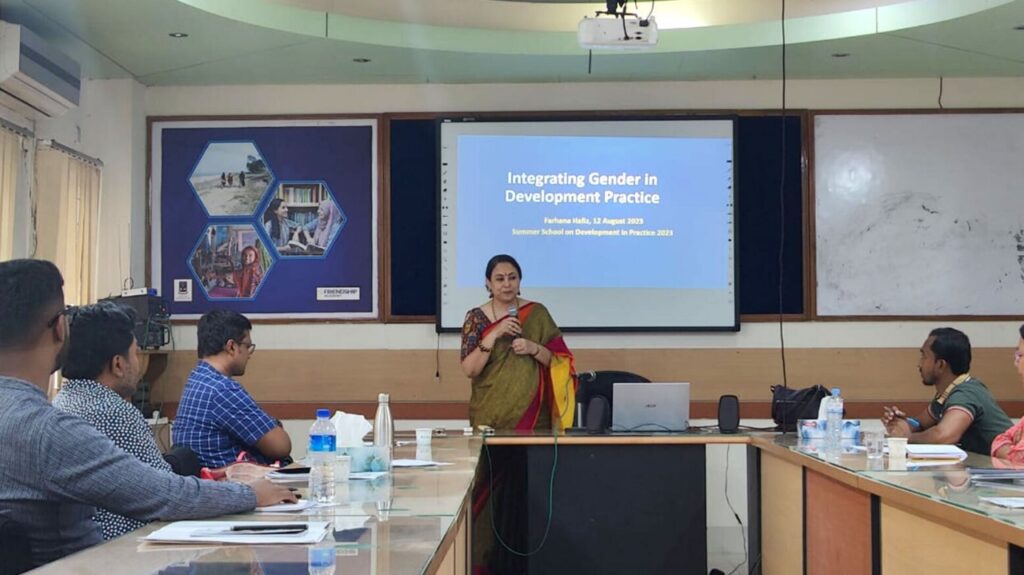
“The cross-organisation peer-to-peer discussions, knowledge sharing, and group work enriched my knowledge,” said Puloq Baraltani, an employee of Sajida Foundation. “We got to learn about the work done by each of our organisations, and this adds diversity to our existing knowledge and gives us a better grasp of development work.”
Most students, however, felt the course was a little too short for the number of topics covered. “The course was compacted into a tight schedule. The duration should be increased for understanding the topics in depth,” continues Samiha.
The ceremony also allowed students to share their testimonies and was concluded after the certificate distribution ceremony.

